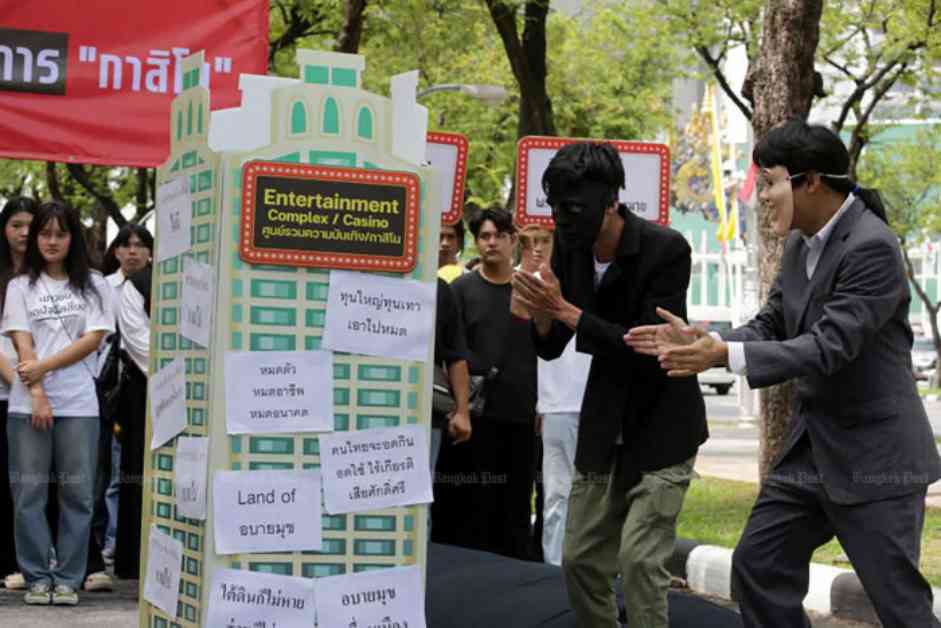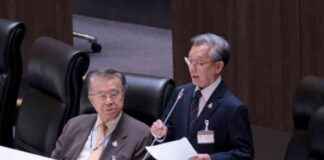The Office of Council of State (OCS) has finalized its amendment to the Entertainment Complex Bill, marking a significant milestone in the legislative process. To ensure transparency and allow stakeholders to voice their concerns, an online public hearing has been scheduled until March 1. This period will provide an opportunity for various parties to express their thoughts and opinions before the bill is put into effect.
Atavit Suwanpakdee, chairman of an advisory board to the Industry Minister, highlighted that while the OCS has made amendments to certain aspects of the bill, there are still minor technicalities that need to be addressed. Specifically, the bill now stipulates that only 10% of an entertainment venue can be designated as a casino. However, there remains uncertainty regarding the number of locations that will be selected and the specific regions in which they will be situated.
Expressing his support for the establishment of full-service entertainment complexes, Atavit emphasized the importance of clearly defining the proportion and size of such venues. He raised concerns about potential challenges that may arise if entertainment complexes are permitted to operate across the country without adequate safeguards in place to address issues like gambling addiction and other social problems.
During the online public hearing, scheduled from February 15 to March 1, stakeholders will have the opportunity to review the revised bill and provide feedback on its provisions. The bill outlines that an entertainment complex can encompass a variety of businesses, including hotels, shopping centers, theaters, meeting spaces, and a casino. It also specifies that the physical footprint of a casino should not exceed 10% of the total land area occupied by the entertainment complex. If the casino is housed within a building, it is limited to 10% of the building’s total area.
Furthermore, the bill mandates the implementation of security measures within the casino premises, including the installation of a fence or entrance gate to separate the casino area from other businesses. Additionally, a control protocol will be put in place at casino entrances and exits to verify the identities of patrons using passports, national identity cards, or other forms of identification.
Thanakorn Khomkrit, secretary-general of the Stop Gambling Foundation, underscored the importance of enforcing the casino inclusion requirement outlined in the bill. He expressed concerns about the lack of governance and oversight mechanisms, likening the bill’s current state to writing a blank check. The ambiguity surrounding the legislative process raises questions about the stringency of the law and the potential implications of its implementation.
Drawing on international research findings, Chittawan Chanagul, an instructor at the Faculty of Economics, Kasetsart University, highlighted the social and economic challenges associated with legalizing casinos in developing countries. Studies have shown that communities hosting casinos may experience a rise in social issues such as gambling addiction, crime, and family breakdowns. Chanagul emphasized the need for stringent regulations to mitigate these risks and prevent adverse outcomes.
Moreover, concerns were raised about the potential involvement of casino businesses in illicit activities such as human trafficking and forced labor. Chanagul cited research indicating that the presence of casinos in regions with high levels of corruption could exacerbate issues like money laundering, violence, and exploitation. The adverse effects of legalizing casinos on developing economies underscore the importance of implementing comprehensive regulatory frameworks to safeguard against negative repercussions.
In response to the proposed Entertainment Complex bill, various advocacy groups, including the Network of Students and People for Reform of Thailand (NSPRT), the Thai People Protecting the Monarchy group, and the Dhamma Warrior Legal Foundation, submitted a petition opposing the establishment of casinos in Thailand. Emphasizing the need for strict enforcement of laws and regulations, Pichit Chaimongkol, NSPRT leader, warned of potential loopholes that could be exploited by illicit businesses for money laundering purposes.
As the debate surrounding the Entertainment Complex bill continues, stakeholders across various sectors are closely monitoring developments and voicing their concerns about the potential impact of legalizing casinos in Thailand. The outcomes of the online public hearing and subsequent deliberations will play a crucial role in shaping the future of the entertainment industry in the country. The need for a balanced and comprehensive approach to regulatory reform remains paramount to address the complex socio-economic challenges associated with casino legalization.




















